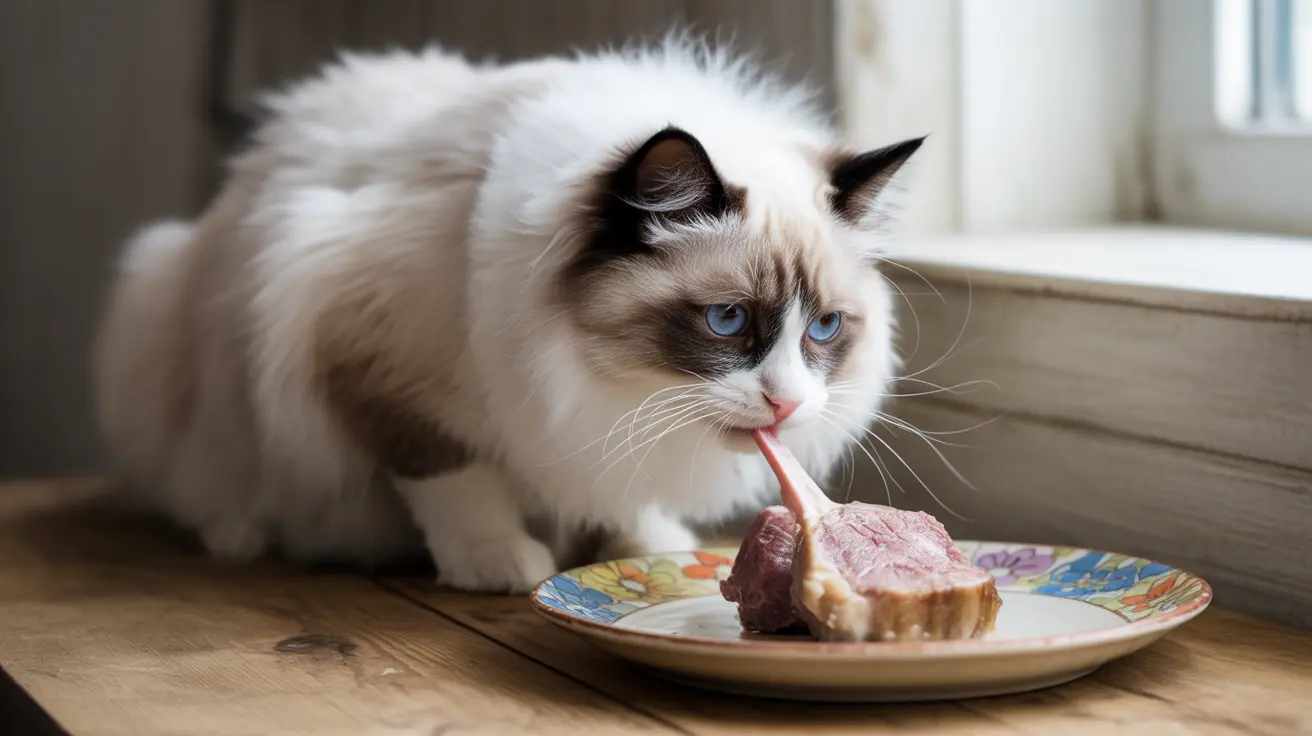Understanding Lamb as a Protein Source for Cats
When considering different protein sources for your feline friend, you might wonder: is lamb good for cats? The answer is yes – lamb can be an excellent addition to your cat's diet when properly prepared and served in moderation. This nutrient-rich meat offers unique benefits that can support your cat's overall health and wellness.
As obligate carnivores, cats require high-quality animal protein to thrive, and lamb provides just that. Let's explore the various aspects of feeding lamb to cats, including its nutritional benefits, potential risks, and proper serving guidelines.
Nutritional Benefits of Lamb for Cats
Lamb is packed with essential nutrients that can benefit your cat's health in numerous ways:
High-Quality Protein Content
Lamb provides complete protein with all essential amino acids, including taurine, which is crucial for your cat's heart health, vision, and reproductive system. This rich protein content supports muscle maintenance and overall growth.
Essential Vitamins and Minerals
Lamb contains vital nutrients including:
- B-complex vitamins for energy metabolism
- Iron for healthy blood cells
- Zinc for immune system support
- Selenium for antioxidant protection
- Phosphorus for bone health
Beneficial Fats
While lamb is higher in fat compared to some other meats, these fats can contribute to healthy skin and coat condition when served appropriately.
When Lamb Makes Sense for Your Cat
Hypoallergenic Alternative
Lamb can be an excellent choice for cats with food sensitivities or allergies to common proteins like chicken or beef. Many veterinarians recommend lamb as an alternative protein source for cats with dietary restrictions.
Picky Eaters
The rich, savory flavor of lamb often appeals to finicky cats who may be reluctant to eat other protein sources.
Important Considerations and Risks
Proper Preparation
Raw lamb should be avoided due to the risk of bacterial contamination. Always cook lamb thoroughly without seasonings, especially avoiding toxic ingredients like garlic and onions.
Portion Control
Due to its higher fat content, lamb should be served in moderation to prevent:
- Weight gain
- Digestive issues
- Potential pancreatitis in sensitive cats
Quality Matters
Choose high-quality, lean cuts of lamb and remove excess fat before serving. This helps minimize potential digestive issues while maximizing nutritional benefits.
How to Introduce Lamb to Your Cat's Diet
Start slowly when introducing lamb to your cat's diet:
- Offer small portions initially
- Monitor for any adverse reactions
- Gradually increase serving size if well-tolerated
- Maintain it as part of a balanced diet
Frequently Asked Questions
Is lamb safe and healthy for cats to eat?
Yes, lamb is safe and healthy for cats when properly prepared and served in moderation. It provides high-quality protein and essential nutrients that support feline health.
How should I prepare lamb for my cat to avoid health risks?
Cook lamb thoroughly without seasonings, remove excess fat and bones, and serve in small, manageable pieces. Never serve raw lamb due to bacterial contamination risks.
Can feeding lamb cause allergies or digestive problems in cats?
While lamb allergies are relatively rare in cats, some may experience digestive sensitivity due to its higher fat content. Monitor your cat for any adverse reactions when introducing lamb.
What are the nutritional benefits of including lamb in my cat's diet?
Lamb provides high-quality protein, essential amino acids, B vitamins, minerals like iron and zinc, and beneficial fats that support overall health, muscle maintenance, and coat condition.
How much lamb can I feed my cat without causing weight gain or pancreatitis?
Lamb should make up no more than 10% of your cat's daily caloric intake. For most cats, this means 1-2 small pieces (about 1 ounce) as an occasional treat or meal supplement.
Conclusion
Lamb can be a nutritious and beneficial addition to your cat's diet when properly prepared and served in appropriate portions. Its rich nutrient profile and potential hypoallergenic properties make it an excellent alternative protein source for many cats. However, always consult with your veterinarian before making significant changes to your cat's diet, especially if they have existing health conditions or dietary restrictions.






